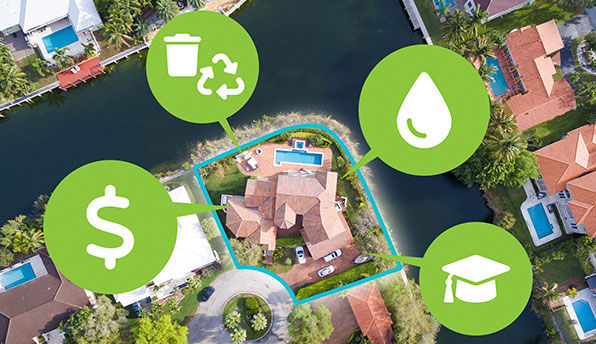The Excavations Section of the Engineering Division of the Public Works Department oversees all excavations in the county through administration of the Excavation and Earthmoving Code of the Charlotte County Code of Laws and Ordinances. This code is located in Chapter 3-5, Article XXIII, starting with Section 3-5-470, of the Code of Laws and Ordinances (Code). For additional information, pleas contact Beth Reed, Excavation Coordinator, at 941.575.3615 or Beth.Reed@CharlotteCountyFL.gov.
Terminology
Excavation means the removing of material below the seasonal high groundwater table.
Earthmoving means any and all activities resulting in the repositioning of terrain including the excavation of lakes, pits, and depressions; mounding, stockpiling, the creation of berms; and the transporting and installing of fill.
Submit an Application
County property owners are required to submit an application to the Community Development Department whenever they want to dig a hole or remove dirt, rocks, or shell from a site for any reason. This is both applicable to a small property owner wanting to dig a fish pond and to a large property owner wanting to commence a commercial operation.
There are three tiers of applications as follows:
1. Exempt Earthmoving Operations:
These are small scale activities that are exempt excavations because the impacts of the activity are considered minimal. Examples are such activities as grave digging, well construction, mini-agricultural ponds, maintenance dredging of canals and stormwater ponds, plowing, tilling or similar soil alteration associated with cultivation of crops, flower gardening and landscaping on a lot with a habitable dwelling with no adverse impacts on adjacent properties. Section 3-5-476 of the Code describes these in detail. A person contemplating such an activity must still submit an application, called the Excavation Exemption Request, and be approved by the Excavation Administrator before being officially exempted.
2. Standard Earthmoving Permits:
These are activities such as Site Plan development (subdivisions, multifamily, commercial and industrial), residential ponds, repair/replace or expand septic tanks and drain fields, raising the elevation of a portion of a lot with a habitable dwelling to a maximum height of up to one foot above natural grade, development of active and passive parks, and stockpiling of dredge spoils.
The following individual construction activities will not require a separate application for an earthmoving permit, but will be permitted in accordance with otherwise applicable county regulations: installation of irrigation pipe, commercial landscaping, slabs, driveways, seawall construction, construction or destruction of pools and buildings including standard building permits, tree removal and other such similar development activities. Activities that are first reviewed through site plan review should have obtained a standard earthmoving permit for much of the site preparation earthmoving associated with that activity, such as the installation of utilities, roads, and stormwater infrastructure. These are detailed in Section 3-5-478 of the code.
3. Specific Earthmoving Permits:
These are activities such as lake reconfiguration (changing an existing lake size or depth), new canals or widening an existing canal, raising lot elevations more than one foot above natural grade, stockpiling fill, filling of an excavation, agricultural (Ag Excavation), a surface water storage pond that is greater than fifteen (15) acres for bona fide agricultural use, and commercial excavations that supply material for construction sites, such as for roadbeds or building pads. These are detailed in Section 3-5-479 of the code.






